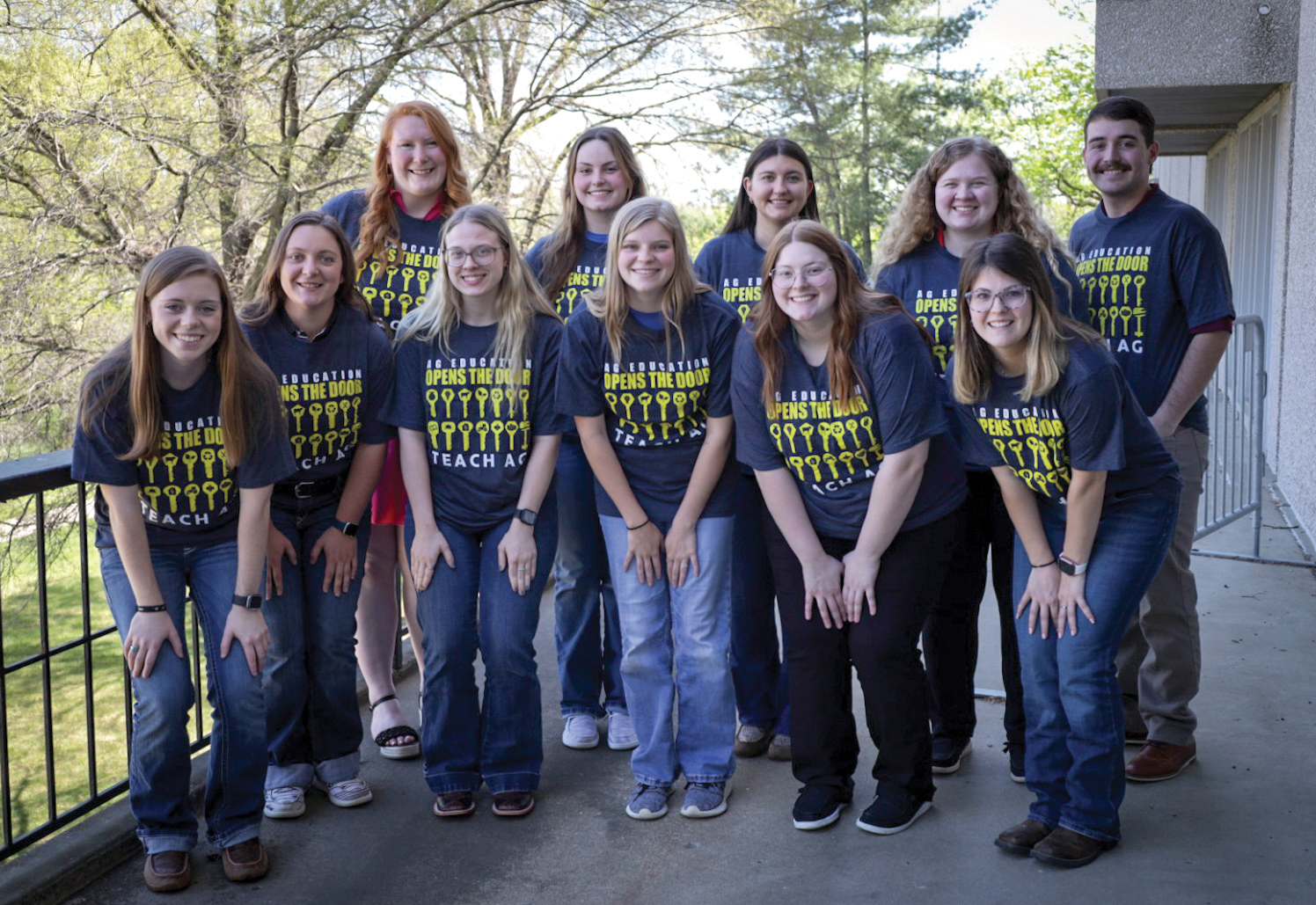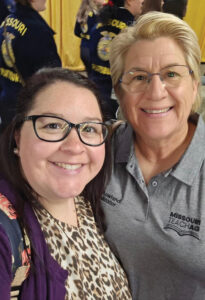
Solving The Ag Educator Shortage
November 15, 2024
Written By Neal Fandek
The agriculture and natural resources industries are arguably among America’s most productive and foundational sectors. A strong educational system is a key contributor to the country’s success in agriculture.
However, there’s a growing concern: There aren’t enough teachers to prepare the next generation of agricultural educators in Missouri or across the country.
As of mid-July 2024, ten schools in Missouri still had agricultural education teacher vacancies, according to Pam Rowland, teacher recruitment and retention coordinator for Missouri Agricultural Education and the Missouri STAR (State Teach Ag Results) Program, both aimed at promoting agricultural education careers. “We have never had that many open positions at that point in the new school year,” Rowland said, noting that the school year for ag teachers began July 1. “It’s never happened before. If positions aren’t filled on time, there’s a fear that schools could put long-term subs, alternative certification teachers or whoever they can find in there.”
Rowland points to several factors contributing to the shortage:
- A nationwide teacher shortage, not just in agriculture, worsened by Baby Boomer retirements
- Challenges of the teaching profession, often coupled with suboptimal pay
- Perceived lack of support from administrators and parents
- A slow recovery in education following COVID-19
- Fewer students attending college at a time when the agriculture industry offers well-paying careers outside of teaching
Rowland, who graduated with a degree in agricultural education in 1985, spent nearly three decades as an agricultural teacher and FFA instructor. “As a female ag teacher, I was a rarity,” she said. “Now, 80-some percent of postsecondary ag teaching students are female.”
One of those bucking the trend is Colin Boyd, an agricultural education major at Missouri State University and a Missouri Agricultural Education Teach Ag Ambassador. Ambassadors, selected from six universities, conduct workshops and promote ag education to high school students at FFA Camp and the State FFA Convention, aiming to inspire future ag educators.
“The amount of time I’ve sat down and talked to people about ag ed for hours on end is just crazy!” Boyd said. “I’ve spent a good part of my four years in college simply advocating for agricultural education in Missouri. A lot of it is just talking, meeting people, showing them the path forward.”
Boyd’s dedication is paying off. He’s already received several teaching offers and is leaning toward a smaller school—one that has struggled to maintain an ag teacher in recent years. “Smaller schools tend to be overlooked because they can’t pay as much as larger ones,” he noted, but they also offer him the opportunity to make a real impact.
Job security, Boyd said, is another strong selling point. “There are a lot of openings, and it’s nice to hear you’ll always have a job as long as you have the degree and are willing to relocate.”
While job security is a strong selling point for future ag teachers, the challenge of low pay is an issue educators across all disciplines face. Dr. Jim B. Hutter, associate professor with the School of Hospitality and Agricultural Leadership at Missouri State University, emphasized that teaching agricultural education is about more than just earning a paycheck.
“Honestly, if students are solely in the profession for financial reasons, they probably are in the profession for the wrong reasons,” Hutter said. “Student success and accomplishments cannot be measured financially.”
While Hutter emphasized the importance of motivation beyond financial gain, Rowland underscored the unique impact that agricultural education can have on students.
“Teaching is not something where you see results right away,” she said. “It’s years later, when those students message you about getting a big scholarship or becoming a professional. Those are the payoffs … Ag teachers are different. A math teacher might see them in class, but we are the ones who take them to Washington, D.C., to the National FFA Convention, on their first plane ride, first time away from home … There’s nothing more impactful than building those personal relationships and making a difference in students’ lives.”
Lindsey Ball, a Teach Ag Ambassador and junior at the University of Central Missouri, also sees the long-term rewards of teaching. She was inspired by her high school ag teachers and was driven to pursue the same path. “I want to help kids grow, learn about agriculture, and find their passion like my ag teachers did for me.”
However, attracting new students to ag education can be a challenge, especially when fewer young people have farming backgrounds. The Missouri Department of Elementary and Secondary Education estimates nearly half of the students enrolled in the University of Missouri’s College of Agriculture, Food and Natural Resources come from urban, non-farm backgrounds.
Ball believes introducing agriculture through school farms, even modest ones without livestock, could be a solution. “For kids who don’t have access to a garden or backyard, a school farm offers them a chance to learn about agriculture. It’s a great way to introduce them to the field.”



Agricultural Education Pathways in Missouri
Agricultural education became part of the U.S. public school system in 1917 with the passage of the Smith-Hughes Act. In Missouri, the Missouri Vocational Agriculture Teachers Association was formed in 1923, and the state launched its Teach Ag program in 2010.
That year, Missouri became one of the first states to receive a grant from the National Association of Agricultural Educators to address the ongoing shortage of ag teachers. According to the Missouri Department of Elementary and Secondary Education (DESE), more than 1 million students from grade seven onward participate in agricultural education programs across all 50 states and three U.S. territories.
To become an agricultural education teacher in Missouri public schools, candidates must earn a bachelor’s degree in agricultural education, which includes a teaching certificate and one semester of student teaching under an experienced ag educator. Scholarships are available through various organizations, and DESE also offers alternative certification for those without an agricultural education degree.
Missouri is home to six institutions offering agricultural education programs: the University of Missouri, Missouri State University, University of Central Missouri, Northwest Missouri State University, Southeast Missouri State University and the College of the Ozarks.


